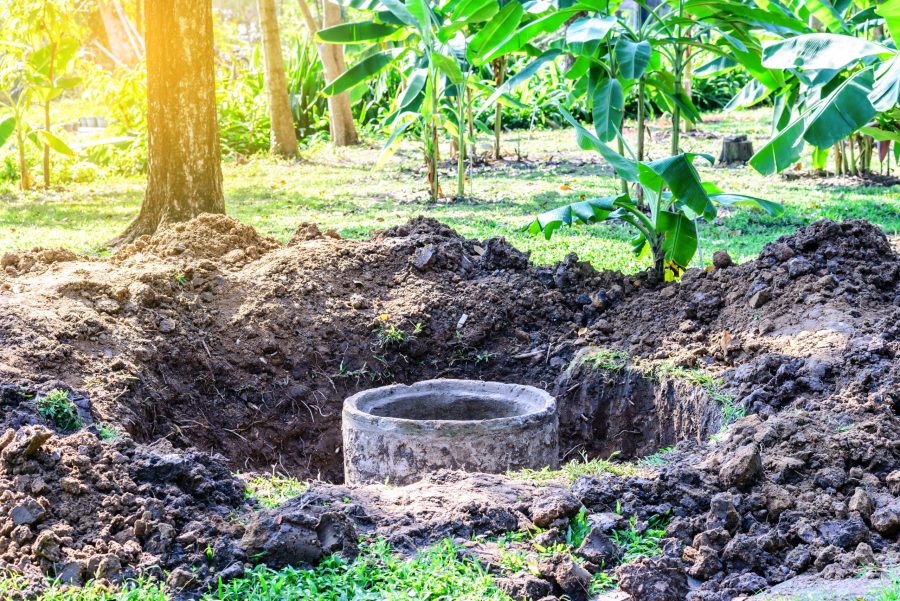Even though modern septic tanks are designed to last for decades, meaning there’s a high chance you’ll never have to worry about replacing or upgrading it, every system has a finite lifespan. Depending on how old the tank is when you purchase the property, any possible defects it may have to begin with, and how well you and the homeowners before you have maintained it, those systems can also become prematurely damaged, and that is why you should always keep an eye out for any signs that it might be time to upgrading or even completely replace your current septic tank.
The Age of the Tank
The older something gets, the more likely it is that there will be damage from repeated wear and tear. This applies to your plumbing and everything it entails, and can certainly apply to your septic tank.
If you have a septic tank on your property, then you should probably keep track of when it was installed, even if that was before you moved in. While every septic system is slightly different, they typically need to be replaced once they reach about 30 or 40 years. Septic tanks that aren’t properly maintained sometimes need to be replaced as often as once every 10 or 20 years thanks to the heavy wear and tear they’d end up enduring. When you have a tank installed, the manufacturer or contracting crew should be able to tell you the estimated lifespan of the system should you properly maintain it.
Even with proper maintenance, there could come a time when you’d be responsible for replacing it, assuming you don’t move out before that time comes around. Should this be the case, it’s best to contact a professional to handle the actual replacement.
Your Family Is Growing
For a growing family, an undersized septic tank can become quite a problem. As more people join your family, you might need to schedule septic tank maintenance and pumping as often as once every few months. Constantly filling your septic tank with little time in between is a clear sign that it is time to speak with a contractor about upgrading to a larger tank that is going to meet your family’s needs. Not all septic tanks are created equal, however, and you should think very carefully about the maximum usage that your chosen unit will support. If your family has recently expanded, or you intend to expand your family further, you should take that into account and leave room for growth when choosing a new septic tank.
This is not the area to try and buy cheap in an effort to save money; if you are going to get a bigger septic tank system, then you better be sure it can handle what you and the rest of your family, no matter their size, might throw at it in the future. It can get very ugly very quickly if you overestimate the capability or size of your septic tank, so make sure you get it right the first time.
You Have Increased the Size of Your House or Will Are Planning a Remodel
Whenever any new home additions take place, you should spend a little bit of time considering your septic tank requirements and location. Many homeowners are surprised to hear that some cities and counties also have strict regulations regarding the size of septic tanks. Before you upgrade your septic tank, you should consult with a local contractor to see what type of capacity is required for your home.
If you plan to relocate your septic tank, you need to consider the location you intend to move it to and what obstacles you may want to consider. You may think you have the perfect spot for your septic tank, but it is easy to forget that they have very specific conditions that they need to exist in. Firstly, they cannot be located under any sort of road, driveway, trail, or other track because this can damage the integrity of the unit beneath the ground. You also need to consider the construction: is your location easy for the required machinery to get to? Will it be possible to get to once the remodeling or additions are finished? These questions need to be figured out before you start on any of your planned projects.
It Is Constantly Breaking Down
When a septic tank is undersized or aging, it’s more than likely that it could begin to break down more and more frequently. While the occasional repair or maintenance issue might not be a big deal, and should probably be expected just like with any sort of equipment or system you use daily, you should be wary if you are constantly dealing with broken parts, especially if they’re the same broken parts over and over. Upgrading your septic system as soon as you can could in fact help you avoid future issues that can be an even bigger pain to constantly take care of such as waste in your yard, unpleasant odors, slow drains, clogs, and even eventually burst pipes.
Replacing your septic tank for one that’s either bigger or better can be a major investment, but comparing it to the constant costs of repairs and getting the tank pumped, it could be seen as the lesser of two evils. It will also greatly reduce your risk of serious problems down the road. A modern septic tank should also last for decades as long as you use it properly and follow all of the manufacturer’s maintenance suggestions.






























No Comments
Leave a comment Cancel